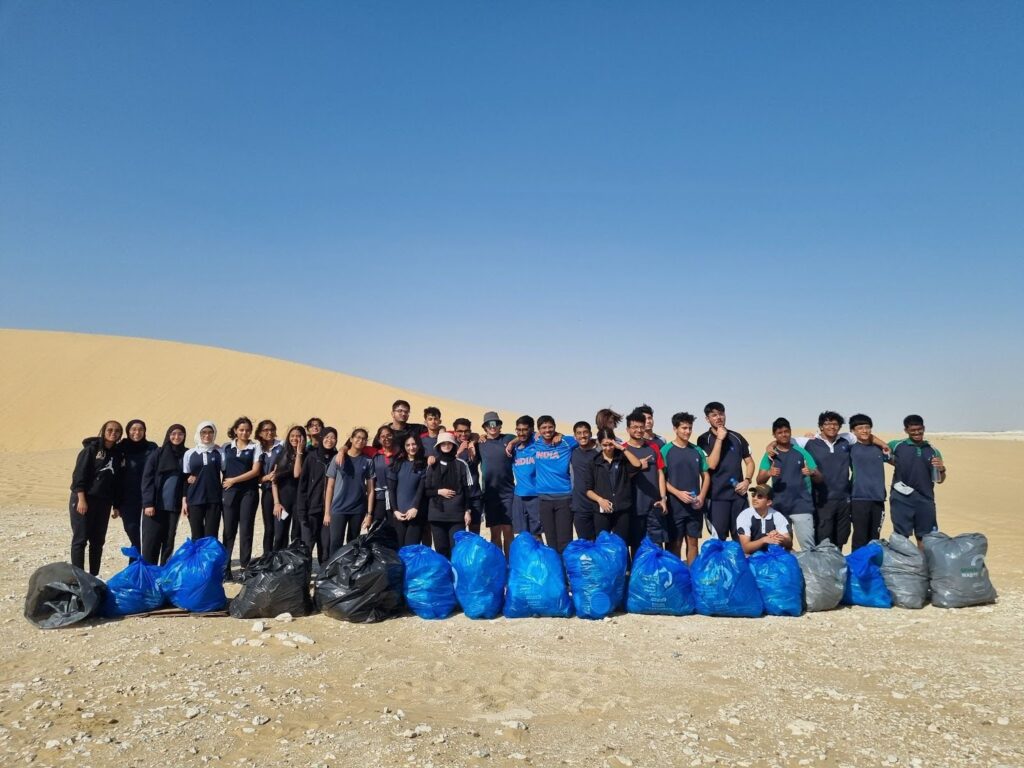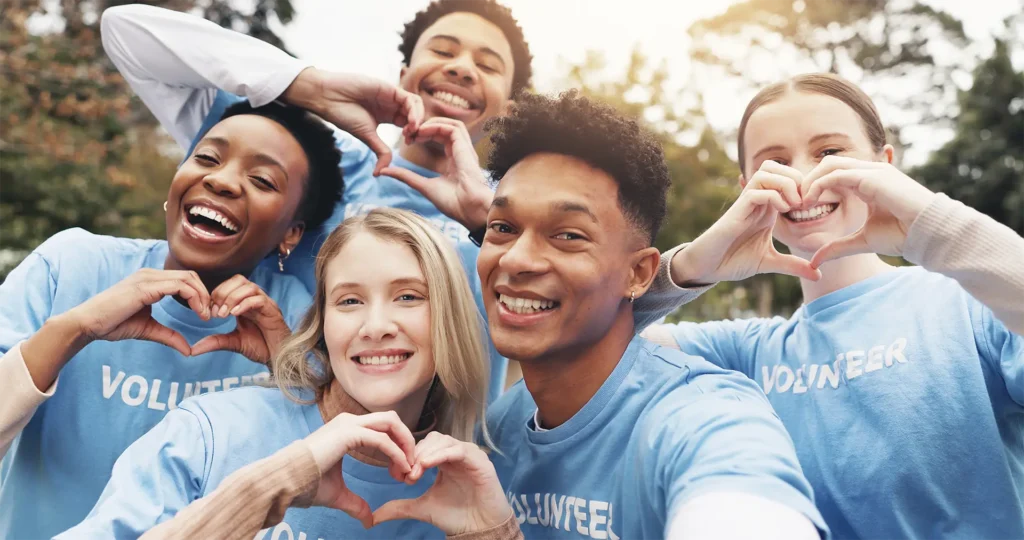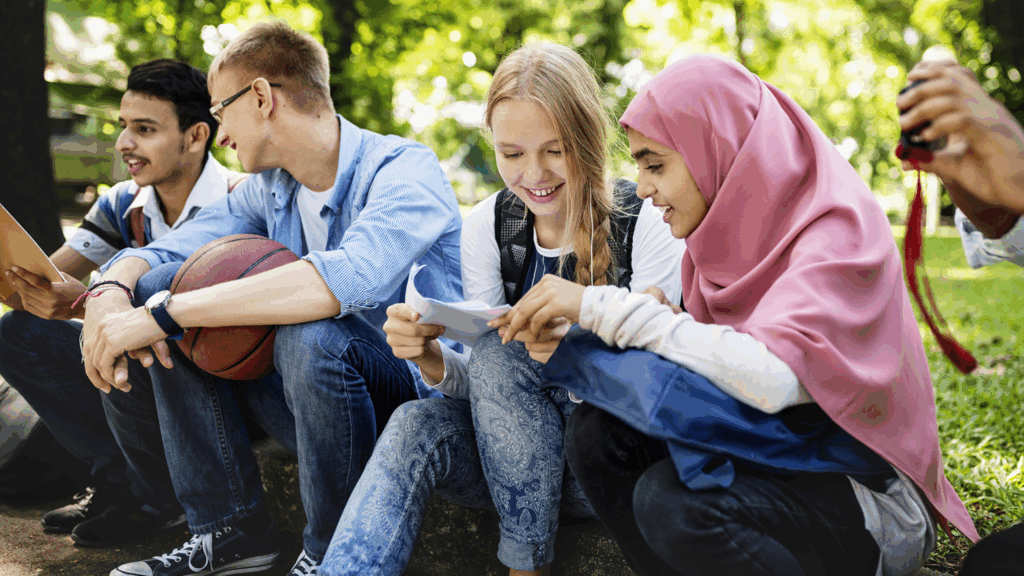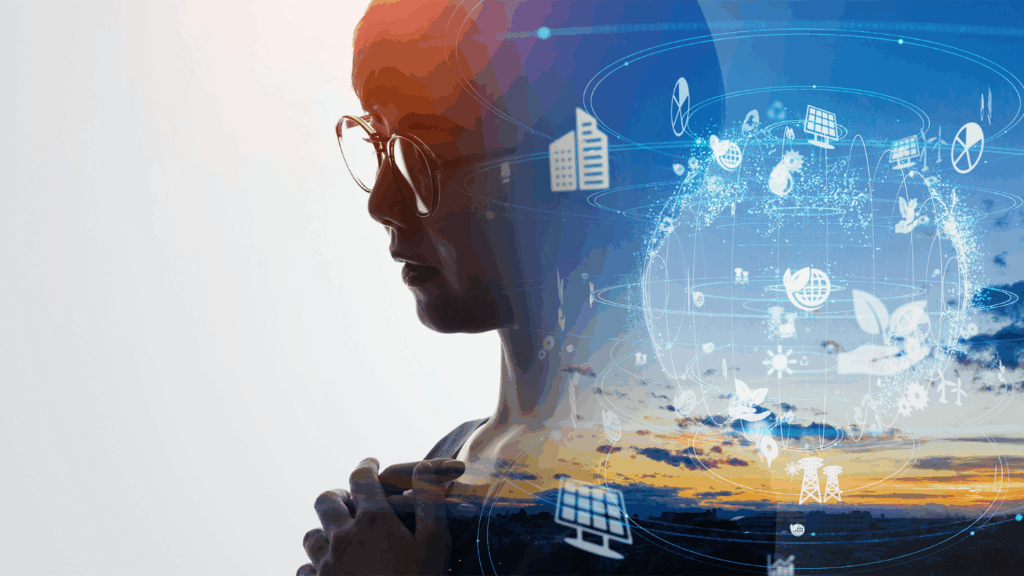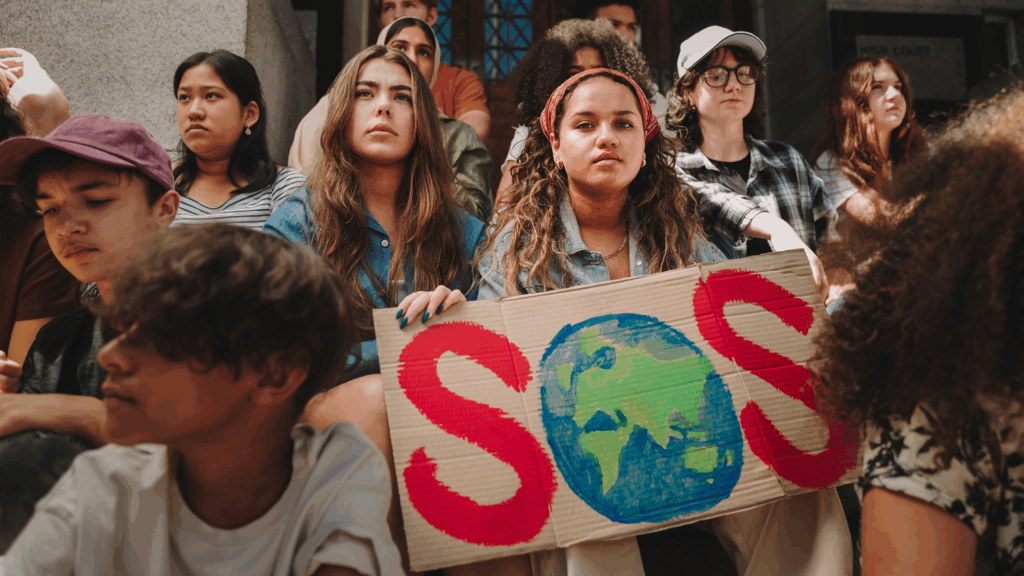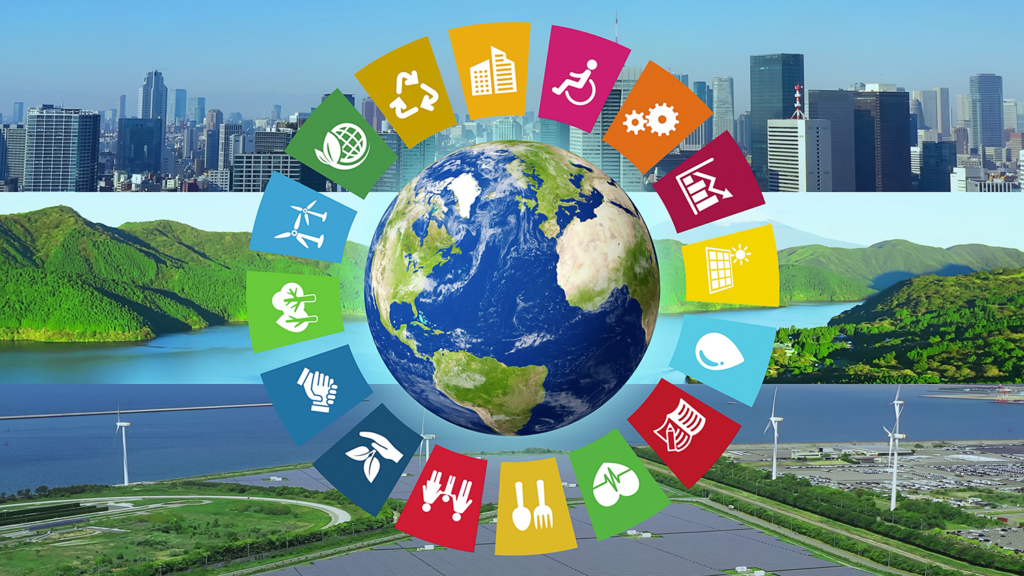The global situation remains a challenge for service programs, with many schools around the world now facing additional months of online delivery. Schools in face to face learning have also found themselves needing to assess the service experiences undertaken by their students, and make adjustments that have replaced in person action with different ways to serve. Our planet needs authentic and meaningful service more than ever and it could be argued that effective school service programs are even more crucial than they were a year ago, but generating ideas for virtual student action that keep students engaged and motivated despite an increased amount of time spent online may be onerous.
An idea for online action — hosting a summit
This article outlines a possibility for a student led, online service action that can encompass a full cycle of service, enabling students to investigate, prepare, reflect, take action and share that action with others in their community. One way to describe a summit “is a strategic conversation that brings different perspectives within a system together to talk about the big picture and big questions.” (Baker and Rhea, 2015). A summit is a mini-conference — a collaborative event which features speakers or guest experts and attendees.
It is a focused discussion around a topic of concern which can raise awareness and possibly lead to further action. If the topic is narrow, summits can provide a space for a deep dive into the chosen area. Summits can also be used to highlight different approaches to a given challenge, introduce something new or showcase an upcoming event. An online summit takes place virtually using a video conferencing platform and is usually one day or less, however sometimes they can extend over a few days.
Student led engagement
An online summit can be predominantly student led, as demonstrated by the International School of Manila (ISM), whose students hosted a successful summit in November. The ISM Sustainability Summit was conceived originally as a face to face, on campus event, but circumstances of Covid19 required a pivot and the summit was reborn as an virtual event. The ISM Sustainability Council Events Team led this process, working alongside Make a Difference (MAD) Courses and teacher facilitators at the school. The Council is made up of a core 6 students, with another 20 students supporting them in their various roles.
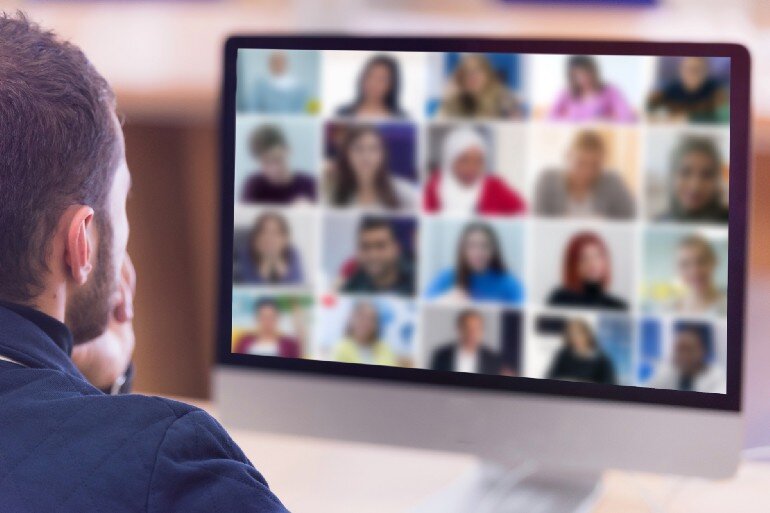
The overall theme of the summit was Sustainability, and the students discussed possible topics related to this subject area, coming up with a series of engaging choices:
- Being alert and savvy about Fake News in the online world
- The “Echo Chamber” or bias confirmation — a discussion
- Performative Activism — pros and cons
- Graphics/Marketing for your cause.
They also found inspiring external presenters and facilitators that were willing to take part in the summit. A keynote speaker to open: Meggie Ochoa, a Filipina activist against online child sexual exploitation, and a pair of university students who set up Labang Pangkalusugan, an organisation that aims to bridge the gaps of healthcare inequalities in the Philippines by taking action through knowledge and service. The university students offered a workshop on how to design for activism, looking at the do’s and don’ts of producing social media posts. They included interactive elements where the participating students analysed their Instagram posts and then tried creating their own.
MAD Course’s Raf Dioniso spoke with participants about how the MAD Market used online tools to bring indigenous tribes’ products to Manila during lockdown, and two students from the Sustainability Council led the workshop about navigating social media and performative activism. They used slideshows, discussion breakout sessions and card sorts to make the workshop interactive. Tom Graham of MAD wrapped it up with a talk on how MAD is pivoting to the online arena to engage in meaningful service opportunities without physically traveling. Isabel, a student from ISM who helped to organise the event said one of “the best things about the Sustainability Summit was being able to hear from such diverse perspectives — from the varying Philippine issues students were passionate about to the approaches they were taking to solve them — all through our computers at home”.
The event itself was a great success and a meaningful experience for all. Kat Govier, Teacher and Sustainability Coordinator at ISM reflects that the major highlight “was the fact that the whole event was planned and led by the students with only small amounts of guidance from their teachers. They were able to produce something valuable to both their community but also their own development whilst online”.

Preparing for an online summit
Planning an online summit would need to start well in advance of the event. Ideally students would have at least 8 weeks to undertake the investigation and preparation. Choosing an appropriate and relevant topic or purpose for the summit is crucial. In order to get this right students would need to consider a community need they are already addressing, or one that needs to be addressed. Exploring this need deeply would enable them to discover what the underlying issues are. From this point they could brainstorm possibilities for the summit and narrow this down to one, considering different aspects of the topic to explore. Making sure the topic has direct links with at least one Sustainable Development Goals its targets is recommended as this will help guarantee the action is purposeful and focused. If students are already working alongside a partner organisation this is a fabulous opportunity for them to collaborate further with the group and raise awareness about the cause the organisation addresses.
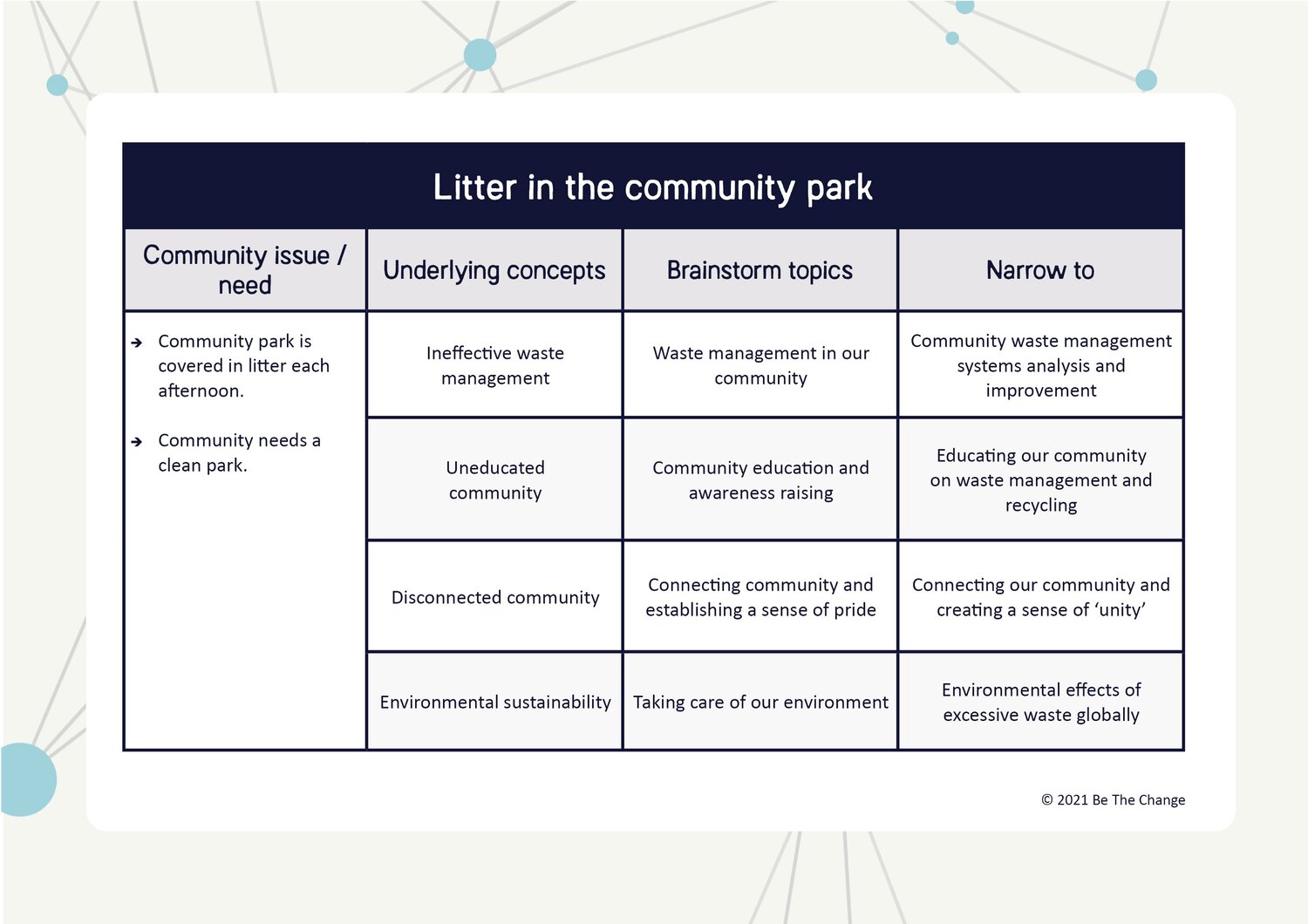
Deciding on the audience and participant numbers for the summit is another important task for the students. The planning committee at ISM decided they wanted to include other students, emailing schools across Metro Manila a month before the event, inviting them to attend. Six schools signed up, with between 6 and 12 students participating. The team had decided to limit each school’s number to 10 students as they were concerned that the Summit could not host over 60 students. On reflection, the students feel like they could have invited more students to the event. As a general rule, higher numbers will lead to a greater level of awareness regarding the topic, lower numbers will lead to increased dialog and deeper discussion.
Important factors for students to consider when deciding on audience are:
- Who can contribute meaningfully to the discussion?
- Who would be interested in the topic?
- Do you want to keep it local, regional, global? Why?
- How many attendees do we want?
Additional areas to consider
Hosting an online summit is a chance for students to build a team and fine tune their collaborative skills. They will need team members to fill roles such as organisation and logistics, technical support, risk management, marketing and facilitating the event. If there is a partner organisation involved the students may choose to invite members to get involved with event planning.
We are now all well versed with video conferencing software, so students should be able to choose a platform that meets their requirements and host the event smoothly. Videoing the event is recommended but ensure students are aware that there are likely to be child protection regulations to consider. Generally, if participants are below the age of 18, sharing of the recording of the summit is not permitted, unless those participants leave their cameras off. Of course, having cameras on allows for more interactivity and connection, but may prohibit the distribution of the recording after the event. This could potentially be alleviated by getting written permission from students and their parents, depending on the policies of the involved schools and the countries they are located in.
Hosting an online summit is an engaging and effective way for students to take action within the limits of social distancing and virtual learning. It offers multiple opportunities for students to serve and make a difference, as well as utilise and develop their skills and qualities.
By Suji DeHart and Alice Whitehead
The article is based on the content of Be The Change by Orenda Learning.
References
Baker, J., & Rhea, M. (2015, December 21). Organising a summit, step by step. Retrieved from: https://www.asaecenter.org/resources/articles/an_plus/2015/december/organizing-a-summit-step-by-step

Orenda Learning is an impact driven organisation that supports active citizenship through the delivery of best practice service programs. Our Strategic Intent is to equip young people with crucial knowledge, skills, qualities and the agency to affect positive global transformation in our rapidly changing and complex world.
